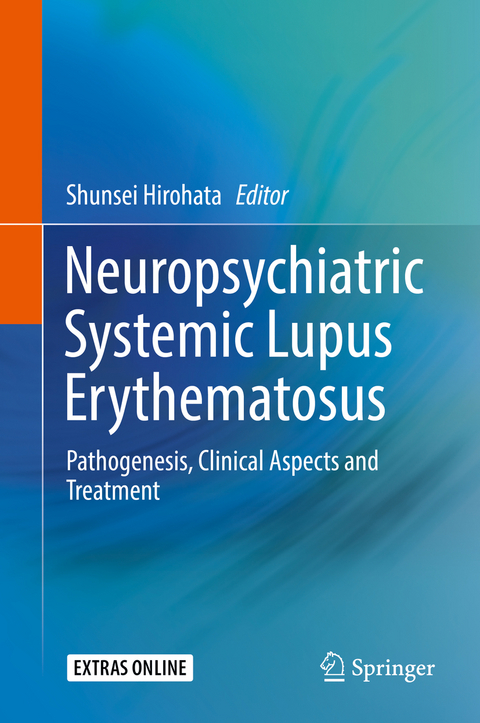
Neuropsychiatric Systemic Lupus Erythematosus
Springer International Publishing (Verlag)
978-3-319-76495-5 (ISBN)
Recently, it has been demonstrated that the severity of blood-brain barrier damages plays a crucial role in the development of acute confusional state, the severest form of diffuse NPSLE through the accelerated entry of larger amounts of autoantibodies to NMDA receptor subunit NR2 into the CNS. Since the importance of autoantibodies in the NPSLE has been now evident, such an aggressive treatment, especially B cell depleting therapy, would make sense in that it would reduce the levels of pathogenic autoantibodies, leading to a better prognosis of NPSLE.
As far as we know, no single book specifically dedicated to NPSLE alone has been published as yet. As mentioned above, NPSLE constitutes a vastly expanding field of research with increasing numbers of papers published annually. Therefore, we believe that an effort to collect and critically review these publications is invaluable. Such an effort will provide an important contribution to basic researchers as well as clinicians working in the field of neurology, rheumatology, psychiatry and internal medicine fields.
Shunsei Hirohata - Shunsei Hirohata graduated from The University of Tokyo School of Medicine in 1980. After the 2-year residency, he joined the Department of Medicine & Physical Therapy, The University of Tokyo. He moved to Teikyo University School of Medicine in 1992 (Associated professor), to Kitasato University School of Medicine in 2006 (Professor), and to Nobuhara Hospital in 2017 (Vice Director). His research topics include neuro-Behcet's disease, neuropsychiatric SLE and bone marrow abnormalities in rheumatoid arthritis. He also works as a visiting professor in Kitasato University School of Medicine.
1 Epidemiology.- 2 Genetics.- 3 Immunology and pathogenesis.- 4 Pathology.- 5 Clinical Features.- 6 Cytokine.- 7 Diagnosis and Differential diagnosis.- 8 Imaging of NPSLE.- 9 Psychiatric symptoms.- 10 Treatment.- 11 Promising treatment alternatives.- 12 Prognosis.
| Erscheinungsdatum | 21.04.2018 |
|---|---|
| Zusatzinfo | VIII, 189 p. 24 illus., 12 illus. in color. |
| Verlagsort | Cham |
| Sprache | englisch |
| Maße | 155 x 235 mm |
| Gewicht | 467 g |
| Themenwelt | Studium ► Querschnittsbereiche ► Infektiologie / Immunologie |
| Naturwissenschaften ► Biologie ► Humanbiologie | |
| Schlagworte | cytokines • epidemiology • Genetics • Pathology • rheumatology |
| ISBN-10 | 3-319-76495-0 / 3319764950 |
| ISBN-13 | 978-3-319-76495-5 / 9783319764955 |
| Zustand | Neuware |
| Haben Sie eine Frage zum Produkt? |
aus dem Bereich


